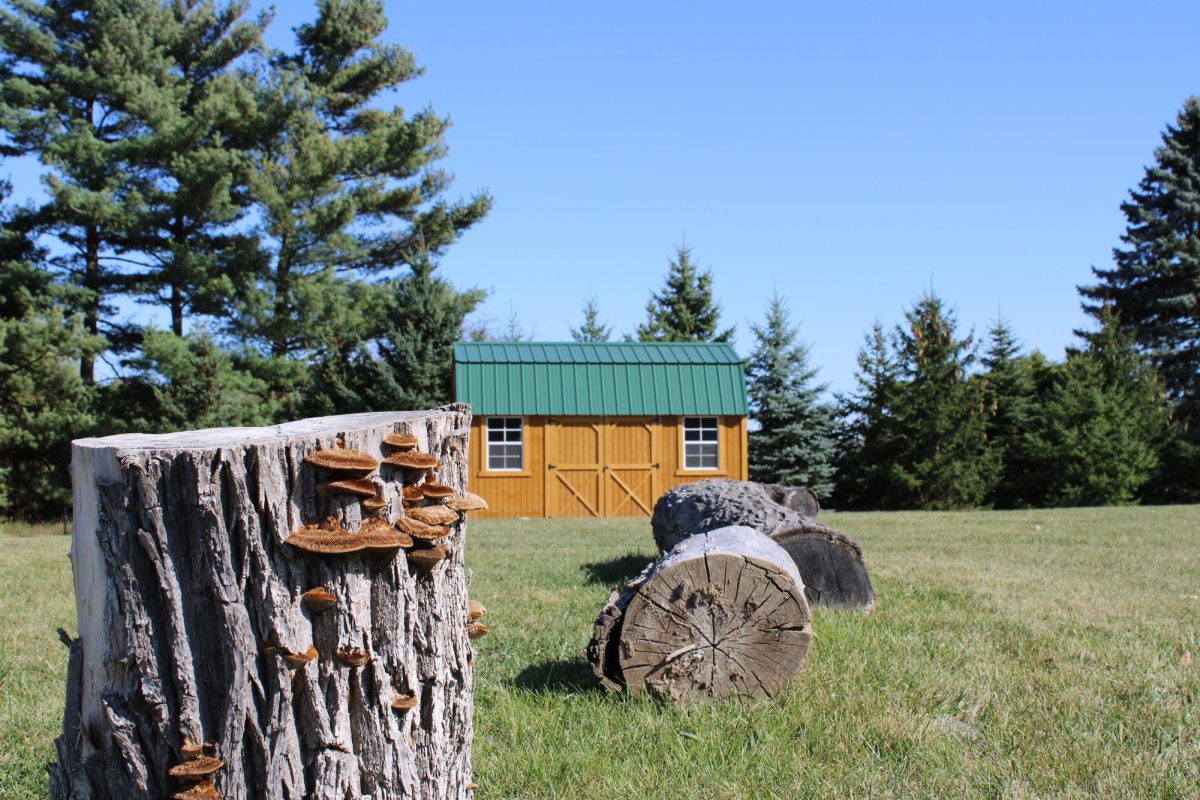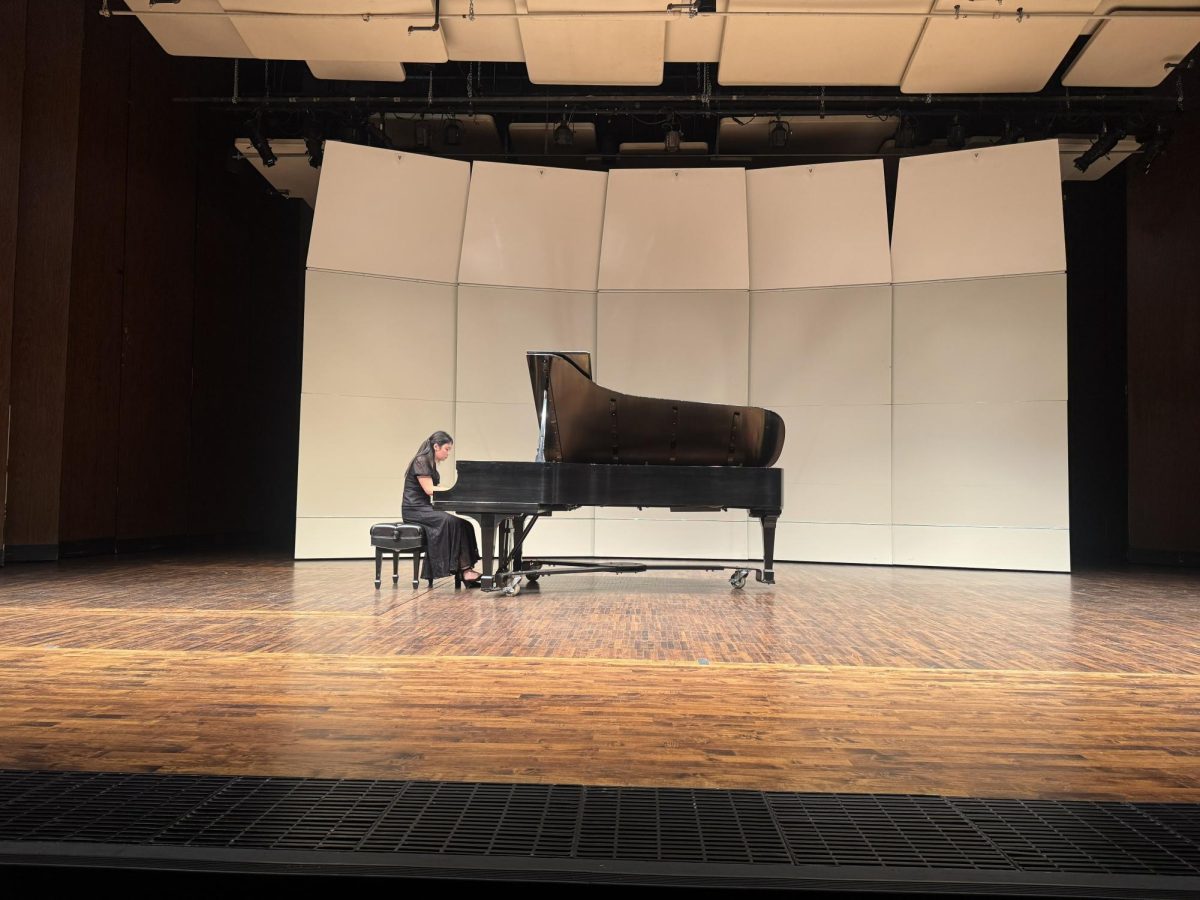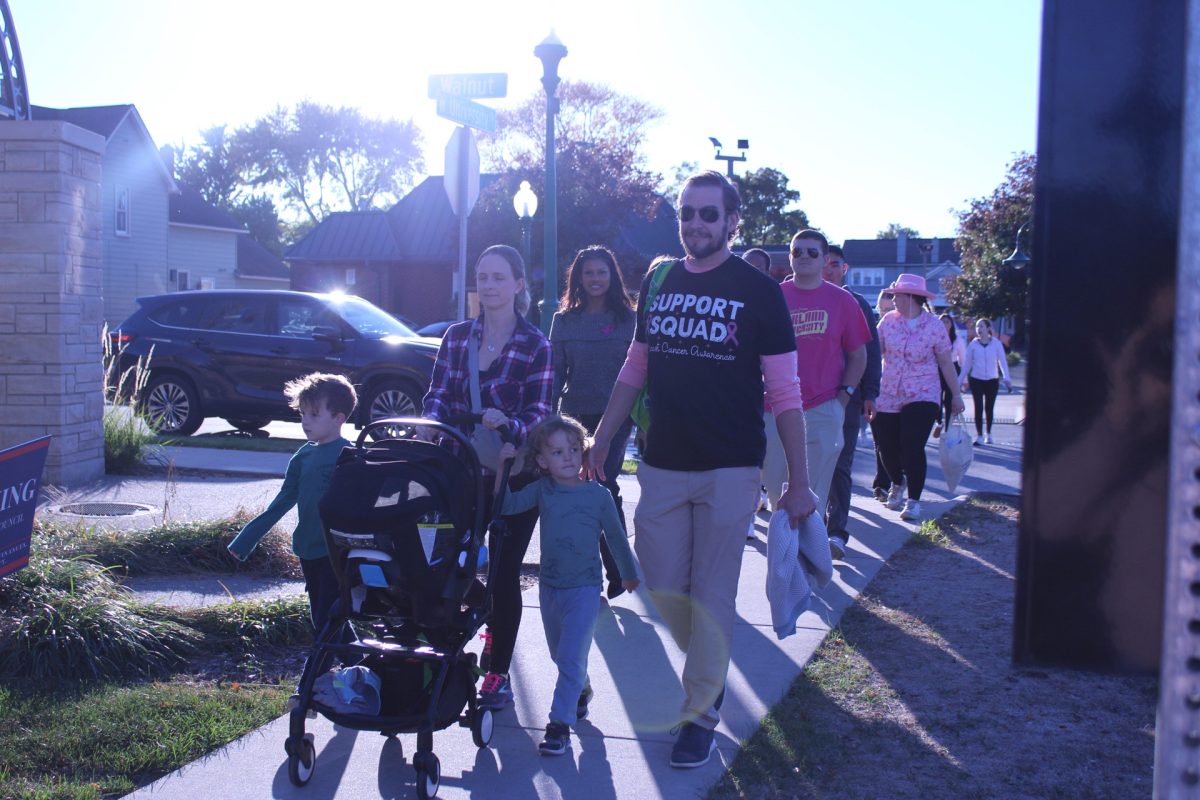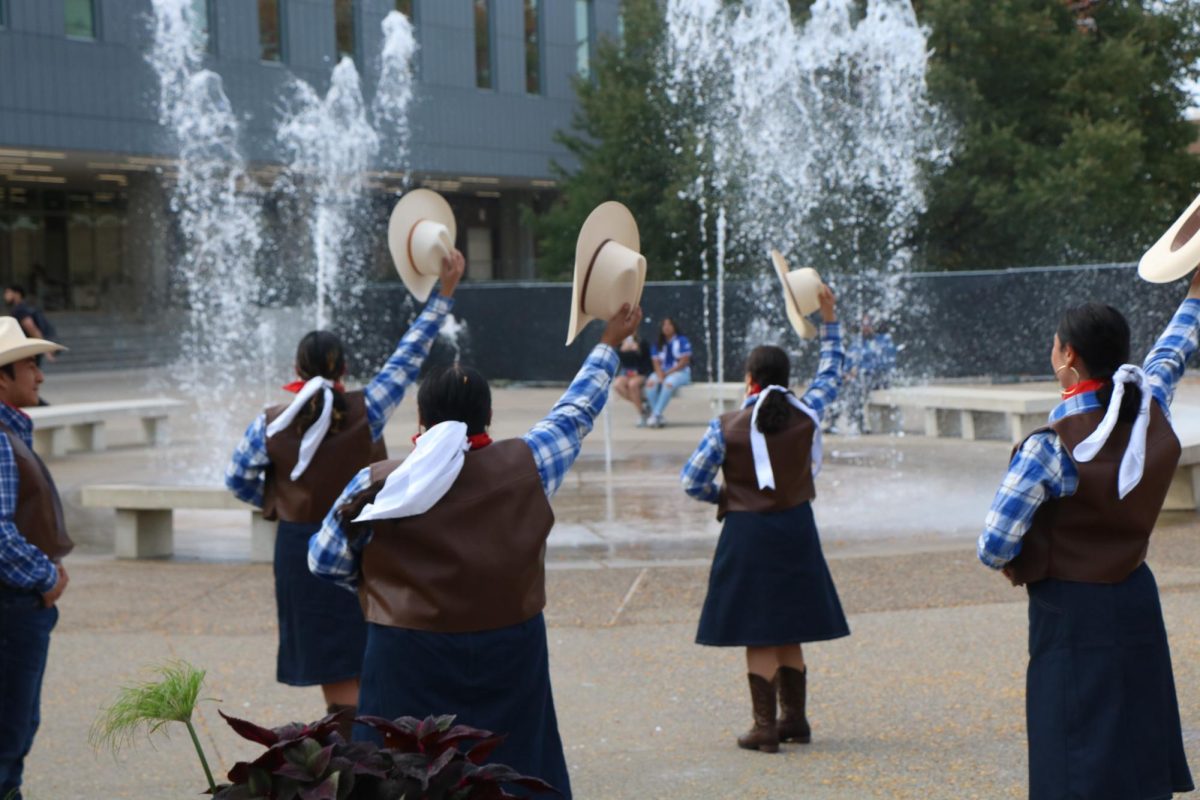The Native American Heritage Site, Gidinawemaaganinaanig: Endazhigiyang, has been the epicenter of rematriation at Oakland University for three years — restoring the land, wildlife and traditional stewardship.
First declared an Anishinaabek Heritage Site in 2022, the conception started in 2019 with the Land Acknowledgement written by a native OU alumni, Tara Maudrie, member of the Sault Ste. Marie Tribe of Chippewa Indians.
“She’s actually just about to receive her Ph.D. at Johns Hopkins,” Andrea Knutson, associate professor of English and co-chair of the Native American Advisory Committee (NAAC) said. “She was a student in the Honors College, and she was doing youth leadership at the American Indian Health and Family Services Center in Detroit.”
The formal statement recognizes the traditional lands that have raised and supported generations of indigenous people and non-native settlers. It respects the sovereignty of Michigan’s Indian Nations and acknowledges the wrongs done by colonial institutions.
“A land acknowledgment is a statement, but it’s also a promise to make changes,” Megan Peiser, associate professor of English, NAAC co-chair and citizen of the Choctaw Nation of Oklahoma, said. “Our land acknowledgment notes that it is going to keep up with these commitments, its actions and its policies in addition to its words.”
Rematriation is the avenue to achieve the goals laid out in a 10-year plan for Gidinawemaaganinaanig: Endazhigiyang, translated in Anishinaabemowin to All our relations: The place where we all grow.
“Repatriation is returning to the people, rematriation is returning to the land,” Peiser said. “This is a space on OU’s campus that is being returned to traditional stewardship and land practices. Allowing the land to return to herself is an important anti-colonial act.”
Peiser explained that this rematriation work is done through gardening, workshops and traditional practices on the land. A welcome garden with ethno-botanically appropriate plants makes a central part of the repatriation process.
“As those [plants] grow out, they reseed and expand in that area,” Peiser said. “Those plants bring pollinators and important insect relatives; then you’re going to have small critter relatives. Those bring the bigger critter relatives to the point where we are finding the coyote, deer, foxes and eagles.”
To restore biodiversity and health on the land, the welcome garden is also accompanied by Cedar trees, a Three Sisters Garden, a Medicine Garden and a Pawpaw Orchard. The different cultivation projects, Peiser explained, help restore indigenous relationships to the land, practice stewardship and better relationships with native fauna and flora.
“This morning, I was stepping out on the land on my way into campus and three herons flew in and landed right next to me,” Peiser said. “They’re coming because of the wetlands that the beaver created. So every time we take these steps, we see evidence of the success and the richness of doing this rematriation work.”
The return of beavers to Galloway Creek has been one of the most mediatic successes of the Gidinawemaaganinaanig: Endazhigiyang heritage site. “In the past, the university has just gotten rid of them,” Knutson said. “All of this infrastructure has allowed us a moment where we can work to coexist with beavers, minks, raccoons, muskrats.”
Currently planning to address accessibility needs with better sidewalk access and building a roofed pavilion to host larger events, Knutson explained that the heritage site has developed 10 years’ worth of projections thanks to the community partners.
“We have gotten donations from Wild Ones North Oakland, Nash Nurseries and Student Congress,” Knutson said. “We would not be able to do this work unless we had strong allyship and partnership with campus facilities or University Communications and Marketing or the Provost Office.”
Peiser offered a reflection on the importance of the heritage site for the entire OU community.
“I want more than just a restoration of land relationships for Native people, I want all people to have land relationships,” Peiser said. “That’s the way forward, the way to fight climate change, the way to fight massive colonial and imperialist projects that are not only destroying our earth, but are destroying our communities, destroying people’s health and our possibility to have to share this knowledge.”






